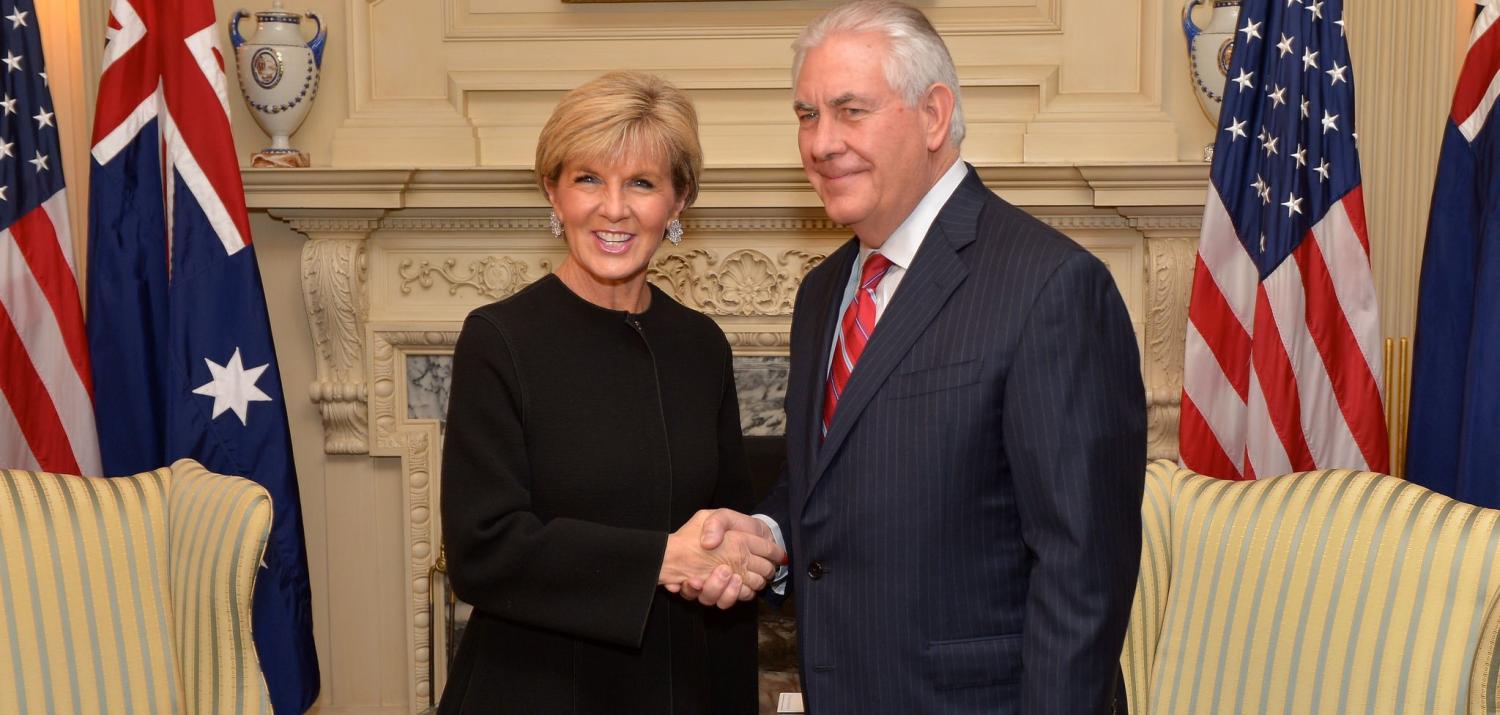This is an edited version of remarks delivered at the National Press Club in Canberra on 21 February, 2017, in a panel discussion with Sir Angus Houston. The full text can be found here, and a video of the event here.
It is easy to be troubled by Donald Trump and the unpredictability of his Presidency. Many of us are. Those who recognise the enduring importance of the alliance to Australia have some challenging tasks ahead.
One is to explain and advocate the alliance regardless of President Trump, and to remind at every turn that the alliance is more robust and lasting than any one administration. Another task, of course, is to look dispassionately at the facts, and to ensure that this state of affairs remains true. A third task is to steer Australia’s policy settings in a way that helps us weather the turbulence of this era. Thus: more resilience, more self-reliance, a deepening and diversification of our security relations, building a strategic web with Japan, India and others to bind and complement US allies. And a fourth mission is to do what we can to shape the choices of the US, and of others, to defend regional stability.
There is a story to be told better at home. Government and business need to directly explain and champion the importance to Australia of our comprehensive ties to the US, including in priority domains like cyber security, as well as in investment and defence.
Certainly there is a need for better public awareness about the alliance, especially in a post-truth era, where the new trend is towards mass misinformation by those opposed to liberal democracy and a rules-based order. We saw Russia’s interference in America last year. We underestimate how vulnerable a country such as Australia could be to sustained, well-resourced propaganda and misinformation aimed at undermining our security and the alliance.
So our politicians, policymakers and opinion leaders need to do more to tell the public precisely why and how the US-backed alliance system is in our interests. This will require engaging directly with the arguments of those who criticise the alliance and who understandably worry about Trump.
The challenge ahead is how to preserve and protect the alliance through a difficult phase. It may well be a different world, and a different America, that emerges from these years. But the alliance will still have an enormous amount to offer Australia. And we have to face the reality that for the foreseeable future, we do not have other options.
Our interests are extensive and our capabilities cannot protect them all. Australia provides security for a continent and its offshore territories. We are the security provider of last resort for much of the South Pacific, including Papua New Guinea. We have zones of maritime responsibility across much of the Indian and Southern Oceans. We are responsible for 43% of Antarctica. We rely acutely on lifelines of trade, investment, information and people across the Indo-Pacific. We rely on a rules-based order in which the rights of small and medium powers are respected.
The fact that our interests outweigh our capabilities places a premium on partnerships. And to attract and consolidate links with partners, including the US alliance, Australia needs credibility. That means it needs its own core strength, its own capabilities, its own strategic weight. We need the capacity to do things for our own security, and to demonstrate this.
That’s why it makes sense for Australia to be able to contribute to regional and global coalitions for common security interests, whether it is the fight against ISIS or shared humanitarian and disaster relief operations.
Governments are good at telling the public how strong and effective our national security is, how much our defence force is capable of doing. But there is much our defence force cannot do alone. And even with the ambitious but generally realistic plans under the Defence White Paper, limits will remain. A degree of military self-reliance in combat is not the same as being able to operate entirely without our US ally, which will continue to provide much of the technology, interoperability, intelligence and targeting a self-reliant combat force will need. And it will be many years before our new regionally superior submarine fleet is operational.
Maybe Government and Opposition have to be somewhat bolder in explaining to the Australian people just what would be the limits of Australia’s security without the US. It is easy and, for some, politically tempting to say we need to begin thinking about Australian security without America. But this appraisal needs to be honest. It needs to include suggestions of what a viable national security strategy (defence, diplomacy, intelligence and social resilience) would look like without the US.
Unfortunately, much of the commentary we hear is light on such practicalities. The onus needs to be on the critics of the alliance to offer realistic alternatives. Likewise, friends of the alliance need to set out a realistic plan for helping Australia and the alliance adjust to the difficult times ahead.

